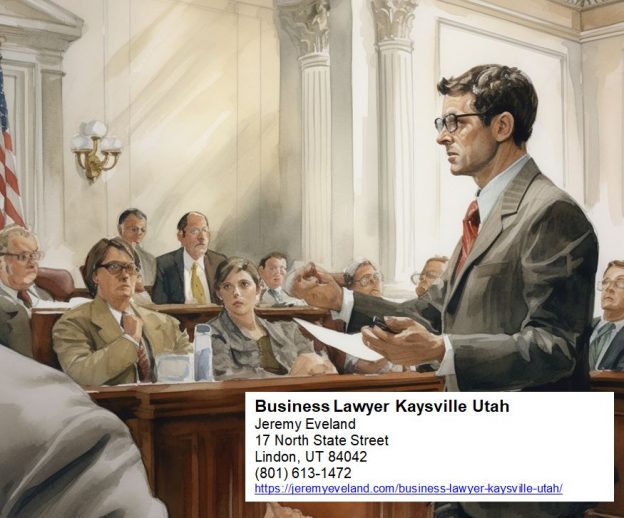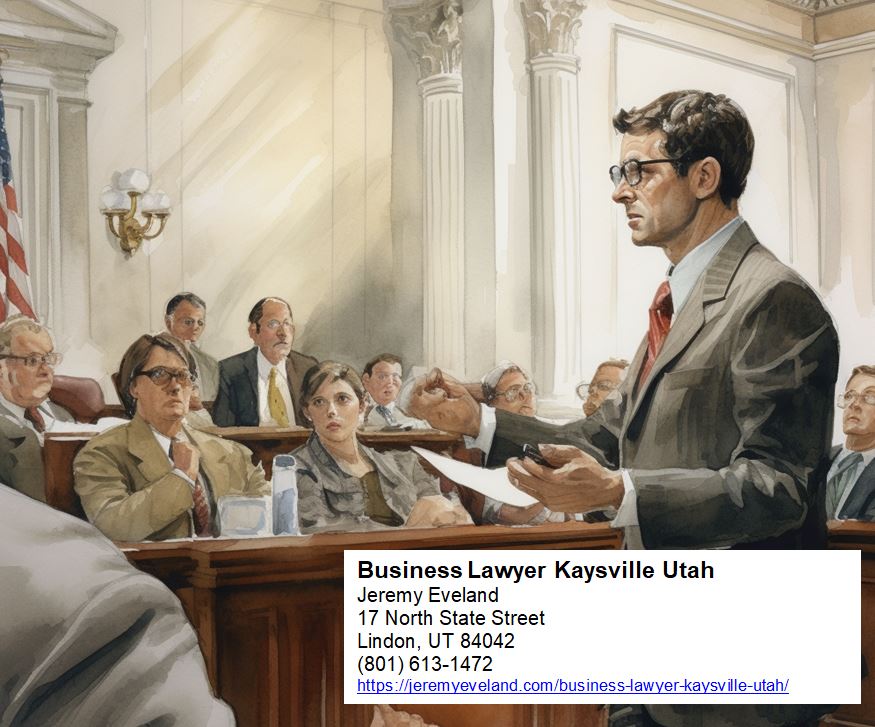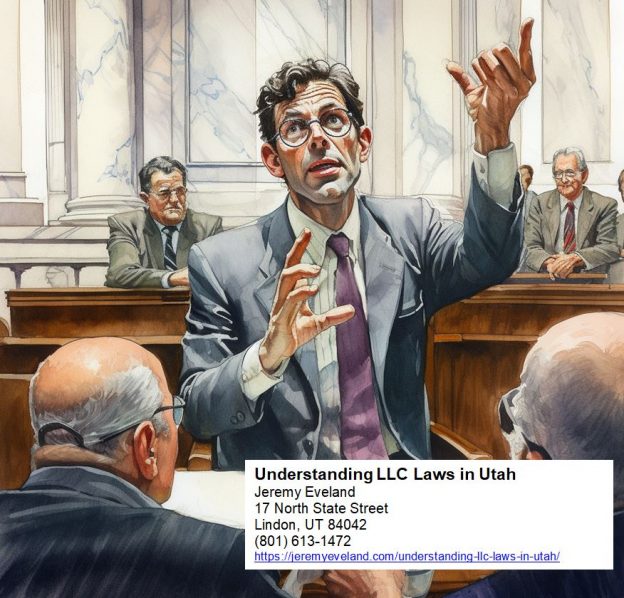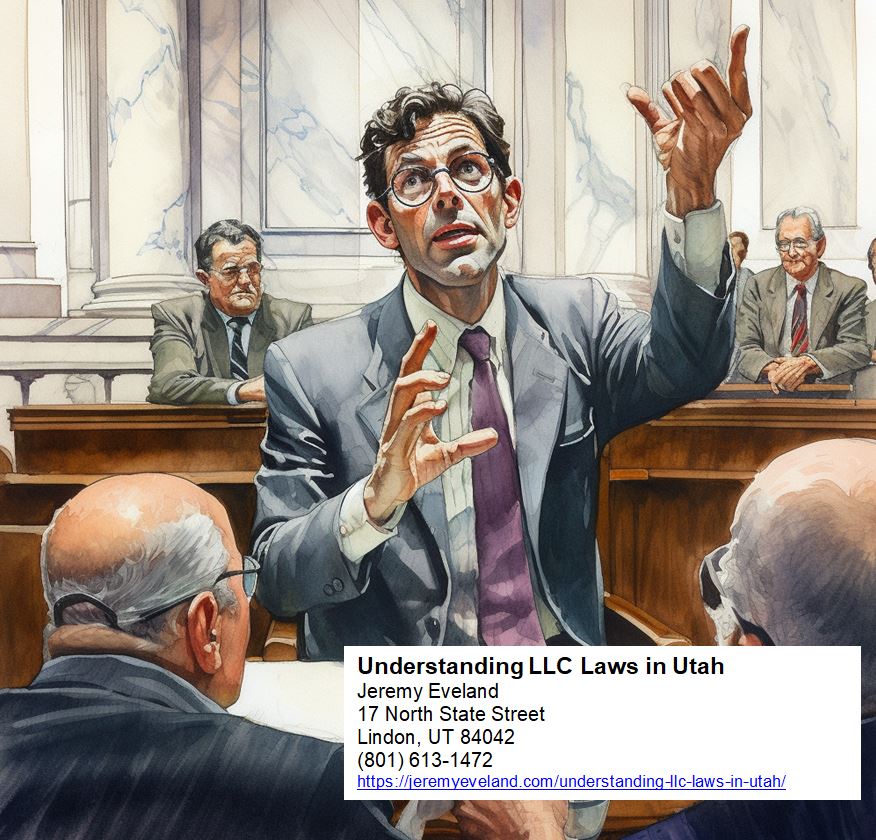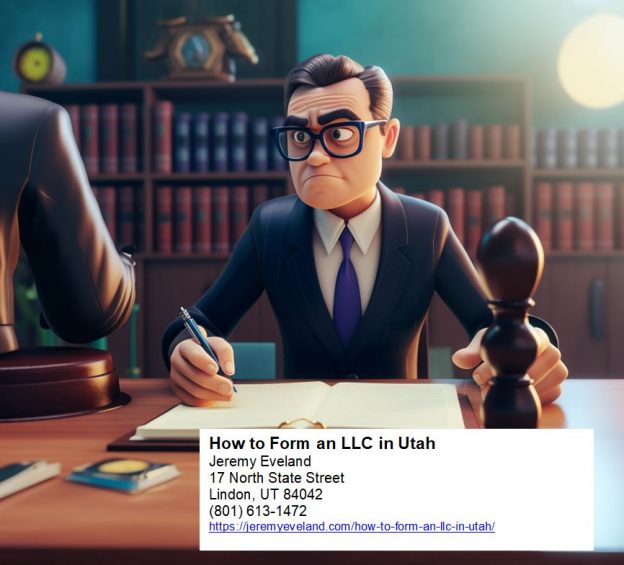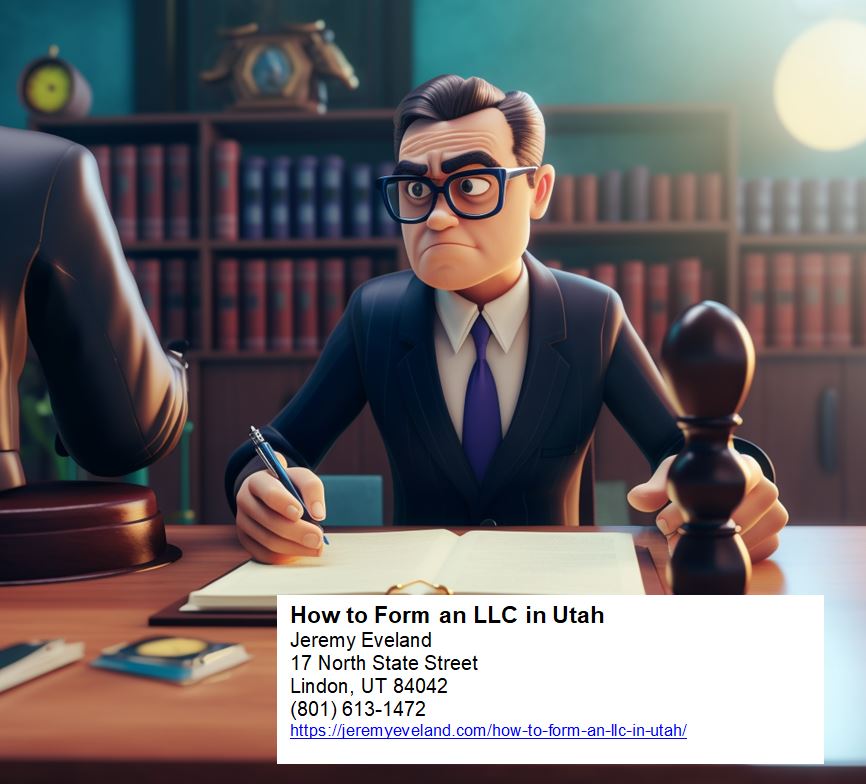Protect Your Business: Why Hiring a Telemarketing Lawyer is Essential for Compliance and Success
Mr. Eveland has represented businesses who regularly engage in telemarketing activities. Lawful telemarketing businesses in Utah need to file an application for, and receive, a telemarketing license from the state of Utah in order to lawful engage in this type of marketing practice. Federal laws also dictate how and when telemarketing activities can occur.
Introduction
Definition of Telemarketing Lawyer
Telemarketing lawyers are legal professionals who specialize in representing individuals and businesses involved in telemarketing activities. They are well-versed in the various state and federal telemarketing laws, regulations, and guidelines, including the Telephone Consumer Protection Act (TCPA) and the Federal Trade Commission (FTC) telemarketing sales rules. Their expertise enables them to provide guidance on compliance matters, mitigate legal risks for businesses that engage in telemarketing, and assist with litigation when necessary.
Importance of Telemarketing Lawyer in Business
Telemarketers are under constant scrutiny from both consumers and regulatory bodies due to the potential for abuse and fraud. As a result, many businesses rely on the counsel of experienced telemarketing lawyers to ensure compliance with federal and state laws governing telephone solicitation.
These legal professionals help their clients navigate complex regulatory frameworks by advising on compliance matters, mitigating legal risk through comprehensive contracts, policies, training programs, audits or investigations. Furthermore, a good telemarketing lawyer can defend a business against accusations of misconduct or violations of consumer protection laws — such as allegations of improper collection practices or TCPA violations — which could otherwise cost a company significant amounts of money in fines or settlements.
One way that a knowledgeable telemarketing lawyer can help protect your business is by ensuring that all calls made by your company comply with state-specific Do Not Call lists. This involves maintaining accurate records of customers’ requests not to be called again after being contacted once by your company’s representatives.
In addition to protecting against liability risks arising from non-compliance with state & federal regulations applicable to telesales practices , hiring an expert attorney also allows companies engaged in this type of activity to respond quickly when there is an unexpected change/interpretation of the law. Telemarketing lawyers can provide guidance and counsel on how to modify procedures and policies quickly, to ensure continued compliance with laws and regulations.
Obtaining legal advice from a telemarketing lawyer can also help companies devise effective telemarketing campaigns that reach their target audience while minimizing potential legal risks. By working with a knowledgeable attorney, businesses can obtain valuable insights into which tactics might be more or less likely to violate state & federal laws governing phone solicitation.
What is Telemarketing?
Telemarketing is a marketing strategy that uses telephone calls to promote a product or service. The goal of telemarketing is to generate sales leads, close sales, and retain customers. Telemarketers often use scripts to guide their conversations and may work in call centers or remotely from home offices.
Definition of Telemarketing
Telemarketing involves making unsolicited phone calls to potential customers in order to persuade them to purchase a product or service. It is one of the most popular direct marketing techniques used by businesses today.
Types of Telemarketing
There are two types of telemarketing: inbound and outbound. Inbound telemarketing involves taking calls from customers who have questions about products or services, want to place an order, or need assistance with an existing purchase. Inbound telemarketers typically work for companies that offer customer support services.
Outbound telemarketing involves making cold calls to potential customers who may not be familiar with the company’s products or services. Outbound telemarketers usually work for businesses that are looking to generate leads, conduct market research, or close sales.
Advantages of Telemarketing
One advantage of telemarketing is its cost-effectiveness compared with other forms of marketing such as television advertising or direct mail campaigns. It allows companies to reach a large number of potential customers quickly and at a lower cost per contact than other methods.
Another advantage is the ability for businesses to target specific demographics by using databases that provide information on potential customers’ age, location, income level, interests and more. Because it allows for immediate feedback from potential customers, it can help businesses tailor their message and improve their overall marketing strategy.
Disadvantages of Telemarketing
One major disadvantage of telemarketing is the potential for customers to view it as intrusive. Unsolicited calls can be seen as annoying and may result in negative feelings towards the company.
Additionally, telemarketing often requires a significant amount of time and resources to generate leads and make sales. It can also be challenging to find qualified telemarketers who are able to effectively communicate with potential customers and build rapport.
There are legal restrictions on telemarketing activities, including those set forth by the Federal Trade Commission (FTC) in order to protect consumers. Violations of these regulations can result in hefty fines or even litigation against a business.
Legal Framework for Telemarketing
The telemarketing industry has been subjected to various regulations over the years. These regulations are designed to protect consumers from fraudulent, deceptive, and abusive practices by telemarketers. The Federal Trade Commission (FTC) is the primary regulator of telemarketing at the federal level.
Federal Trade Commission (FTC) Regulations
The FTC has issued several regulations that affect telemarketing practices, including the Telephone Consumer Protection Act (TCPA), Do Not Call Registry, and Fair Debt Collection Practices Act (FDCPA).
Telephone Consumer Protection Act (TCPA)
The TCPA was enacted in 1991 to regulate telemarketing calls made to consumers. Under the TCPA, it is illegal for a marketer to use an automatic telephone dialing system or prerecorded voice message to call or text a consumer’s cellphone without their prior express consent. In addition, the TCPA also requires that all robocalls and autodialed calls made to residential landlines have prior express consent from the person being called or an established business relationship with them.
Do Not Call Registry
The FTC established a national Do Not Call Registry in 2003 as part of its efforts to combat unwanted commercial solicitation. The registry allows consumers to opt-out of receiving most telemarketing calls by registering their phone number on the list. Telemarketers are required under federal law to scrub their call lists against the registry once every 31 days and remove any phone numbers on it before calling those customers.
Fair Debt Collection Practices Act (FDCPA)
The FDCPA regulates debt collection practices in general but also applies to debt collection via telephone. It requires that debt collectors identify themselves and disclose the purpose of their call, treat consumers with respect, and avoid making false or misleading statements when attempting to collect a debt over the phone.
State Laws and Regulations
Some states have implemented additional laws or regulations targeting telemarketing practices within their borders. Two examples are state-specific Do Not Call lists and state debt collection laws.
State-Specific Do Not Call Lists
In addition to the federal Do Not Call Registry, some states maintain their own Do Not Call lists. These lists work in a similar way but are often more restrictive than the federal registry. Telemarketers must comply with both federal and state-specific do not call lists if they operate within those states.
State Debt Collection Laws
Several states have enacted separate laws governing debt collection practices beyond what is required by federal law under the FDCPA. These can include restrictions on when collectors can call or how often they can contact a consumer, among other things. It’s important for telemarketing companies to be aware of any relevant state laws in order to avoid violating them while doing business in those jurisdictions.
Technology and Telemarketing Law
With the advent of digital technology, telemarketers have expanded their range of tools to reach more customers. However, laws have been put in place to regulate the use of such technologies in telemarketing campaigns. The following are some of the most prominent technologies that have been regulated by law:
Robocalls & Autodialers
A robocall is an automated telephone call that delivers a pre-recorded message to the recipient. Meanwhile, an autodialer is a device that can automatically dial telephone numbers without human intervention.
Both robocalls and autodialers have been extensively used by telemarketers to reach a wide audience quickly. However, the use of such technology has been regulated by various laws and regulations.
The Federal Communications Commission (FCC) has set rules to prevent unsolicited calls from reaching consumers who have not given prior consent. The Telephone Consumer Protection Act (TCPA) restricts calls made using automatic telephone dialing systems (ATDS), which includes both autodialers and prerecorded voice messages.
The TCPA requires telemarketers to obtain prior written consent from consumers before making any automated calls or sending text messages for marketing purposes. Additionally, it requires that all automated calls must provide an opt-out option for recipients.
In recent years, several cases have found businesses guilty of violating TCPA regulations related to robocalls and autodialers. Therefore, it’s crucial for businesses conducting telemarketing campaigns using these technologies to comply with all relevant regulations.
Text Messages & SMS Marketing
SMS marketing is another popular technique used by businesses today due to its high engagement rate with customers via mobile devices. However, SMS marketing must adhere to strict regulations set by the FCC, particularly under the TCPA.
Under the TCPA, businesses must receive prior express written consent from customers before sending any SMS marketing messages. The written consent must include clear disclosure of what customers are signing up for and what they’ll receive in terms of messages.
Additionally, all text messages must include an opt-out mechanism to allow recipients to unsubscribe at any time. A violation of these regulations can lead to hefty fines and lawsuits.
Recently, companies have faced class-action lawsuits for violating TCPA regulations related to SMS marketing campaigns. Therefore, it’s essential for businesses to understand these regulations and ensure compliance when conducting SMS marketing campaigns.
Technology has changed the way telemarketers reach consumers today. However, businesses need to be aware of regulations governing its use in telemarketing campaigns. The use of robocalls, autodialers, text messages or SMS marketing all require strict adherence to federal and state laws as well as maintaining consumer privacy rights.
Techniques used by telemarketers to violate regulations
Telemarketing has become an essential part of many businesses. However, some telemarketers use unethical ways to contact potential customers, leading to numerous complaints from people who are on the receiving end of these calls.
Regulators and lawmakers are always looking for ways to stop these practices, but telemarketers find new ways every day to circumvent the rules. Here are some techniques that telemarketers use to violate regulations:
Caller ID Spoofing
One of the most common techniques used by telemarketers is caller ID spoofing. It is a process where a caller manipulates the caller ID system, making it look like they are calling from a different number or even a different location.
This practice is illegal under the Truth in Caller ID Act and can result in hefty fines. Caller ID Spoofing can be used for various reasons such as making unsolicited sales calls and debt collection calls, causing confusion among customers about the identity of the caller or its purpose.
The practice has become widespread with advancements in technology that allow spoofed numbers to appear familiar or local. To combat this issue, regulatory bodies have introduced tools like call-blocking apps with advanced algorithms that detect spoofed numbers before they pass through to customers’ devices.
Voicemail Drops
Another technique that violates regulations is voicemail drops. This method involves using software that sends pre-recorded voice messages directly into someone’s voicemail without their phone ever ringing.
It may seem harmless as it does not disrupt an individual’s day-to-day life; however, many consider it intrusive and invasive. Voicemail drops are often associated with robocalls since automated systems send them out en masse without human intervention.
Telemarketers use this technique because it allows them to bypass call-blocking software and other measures that prevent unsolicited calls from going through. Voicemail drops are illegal unless the telemarketer has received the customer’s prior written consent.
Many telemarketing companies employ this technique with the assumption that they can only be penalized if someone complains. However, Federal bodies have taken note of this and increased enforcement actions to prevent this practice.
Ringless Voicemails
Ringless voicemail is similar to voicemail drops, but instead of sending pre-recorded messages directly to a person’s voicemail box, it sends them to a server where it stays until the person’s phone connects to the internet. The message then appears in their voicemail without calling their phone. The concept behind ringless voicemails is that they are not actual calls and hence cannot be blocked by call-blocking software.
Telemarketers use this technique because it increases their chances of getting a response since people may check their voicemails even if they don’t pick up incoming calls. Some believe that ringless voicemails bypass laws prohibiting robocalls and therefore fall into a gray area of regulation.
However, regulatory bodies like the FCC have clarified that these practices still fall under federal regulations governing robocalls and other forms of unsolicited marketing practices. Regulatory bodies have taken measures to curb these unethical techniques employed by telemarketers.
These regulations aim to protect consumers’ privacy rights and ensure ethical practices within telemarketing industries. Telemarketing companies should understand these laws’ implications and seek legal advice when necessary, lest they face hefty fines or lawsuits for violating consumer privacy rights.
How a Telemarketing Lawyer Can Help Your Business?
Compliance with FTC Regulations and State Laws
A telemarketing lawyer can help your business in numerous ways. One of the most important areas they can assist with is ensuring compliance with Federal Trade Commission (FTC) regulations and state laws.
Since telemarketing is heavily regulated, it is crucial that businesses follow all applicable rules and guidelines to avoid running afoul of the law. A skilled telemarketing lawyer can help you understand the complex web of federal and state regulations governing telemarketers.
They can advise on how to conduct campaigns while remaining in compliance with these regulations. Additionally, they can review your current practices to ensure that they are in line with regulatory requirements.
Legal
In addition to compliance issues, a telemarketing lawyer can also provide legal representation for your business in case of any legal disputes or litigations arising from your telemarketing activities. If you find yourself facing a lawsuit or investigation by a regulatory agency, a qualified lawyer with experience in this area will be invaluable.
They will represent you throughout any legal proceedings, ensuring that your rights are protected and that you receive fair treatment under the law. They will also work to resolve disputes quickly and efficiently, allowing you to focus on running your business.
Benefits of Working With a Telemarketing Lawyer
Working with a telemarketing lawyer has several benefits for businesses involved in this industry. These benefits include: 1) Expert Advice: A competent lawyer has an intimate understanding of the laws surrounding telemarketing practices at both the federal and state levels.
2) Protection Against Unforeseen Legal Issues: By working proactively with an attorney who understands relevant laws and regulations, companies minimize their risk for unexpected legal issues arising from their marketing techniques. 3) Assistance with Contracts and Agreements: A telemarketing attorney can help draft or review contracts and agreements relating to telemarketing, ensuring legal compliance while offering companies the best protection possible.
Conclusion
Working with a telemarketing lawyer is an essential step for any business involved in this industry. By seeking proactive legal advice and representation from an experienced professional, companies are better positioned to comply with federal regulations, avoid legal disputes, and grow their businesses. So if you’re involved in telemarketing activities or want to learn more about the subject, contact a qualified attorney today!
Areas We Serve
We serve individuals and businesses in the following locations:
Salt Lake City Utah
West Valley City Utah
Provo Utah
West Jordan Utah
Orem Utah
Sandy Utah
Ogden Utah
St. George Utah
Layton Utah
South Jordan Utah
Lehi Utah
Millcreek Utah
Taylorsville Utah
Logan Utah
Murray Utah
Draper Utah
Bountiful Utah
Riverton Utah
Herriman Utah
Spanish Fork Utah
Roy Utah
Pleasant Grove Utah
Kearns Utah
Tooele Utah
Cottonwood Heights Utah
Midvale Utah
Springville Utah
Eagle Mountain Utah
Cedar City Utah
Kaysville Utah
Clearfield Utah
Holladay Utah
American Fork Utah
Syracuse Utah
Saratoga Springs Utah
Magna Utah
Washington Utah
South Salt Lake Utah
Farmington Utah
Clinton Utah
North Salt Lake Utah
Payson Utah
North Ogden Utah
Brigham City Utah
Highland Utah
Centerville Utah
Hurricane Utah
South Ogden Utah
Heber Utah
West Haven Utah
Bluffdale Utah
Santaquin Utah
Smithfield Utah
Woods Cross Utah
Grantsville Utah
Lindon Utah
North Logan Utah
West Point Utah
Vernal Utah
Alpine Utah
Cedar Hills Utah
Pleasant View Utah
Mapleton Utah
Stansbury Par Utah
Washington Terrace Utah
Riverdale Utah
Hooper Utah
Tremonton Utah
Ivins Utah
Park City Utah
Price Utah
Hyrum Utah
Summit Park Utah
Salem Utah
Richfield Utah
Santa Clara Utah
Providence Utah
South Weber Utah
Vineyard Utah
Ephraim Utah
Roosevelt Utah
Farr West Utah
Plain City Utah
Nibley Utah
Enoch Utah
Harrisville Utah
Snyderville Utah
Fruit Heights Utah
Nephi Utah
White City Utah
West Bountiful Utah
Sunset Utah
Moab Utah
Midway Utah
Perry Utah
Kanab Utah
Hyde Park Utah
Silver Summit Utah
La Verkin Utah
Morgan Utah
Telemarketing Lawyer Consultation
When you need help from a Telemarketing Lawyer, call Jeremy D. Eveland, MBA, JD (801) 613-1472 for a consultation.
Jeremy Eveland
17 North State Street
Lindon UT 84042
(801) 613-1472
Related Posts
Navigating Legal Challenges in Business Succession Planning
Business Lawyer Bountiful Utah
How To Structure A Merger Or Acquisition In Utah
How To Hire Employees Legally in Utah
10 Tips for Negotiating Lease Agreements
Business Lawyer Spanish Fork Utah
How To Start A Non-Profit In Utah
What are the Trademark Laws in Utah
Business Lawyer Pleasant Grove Utah
How to Calculate Overtime Pay in Utah
Business Lawyer Cottonwood Heights Utah
Understanding Utah’s Consumer Protection Laws
Comprehensive Guide To Hiring A Business Lawyer
Business Lawyer Springville Utah
Mergers and Acquisitions from a Legal Perspective
Business Lawyer Eagle Mountain Utah
Understanding Anti-Trust Laws in Utah
Business Lawyer Cedar City Utah
Understanding LLC Laws in Utah
Business Lawyer Kaysville Utah
Understanding Utah’s Non-Profit Laws




